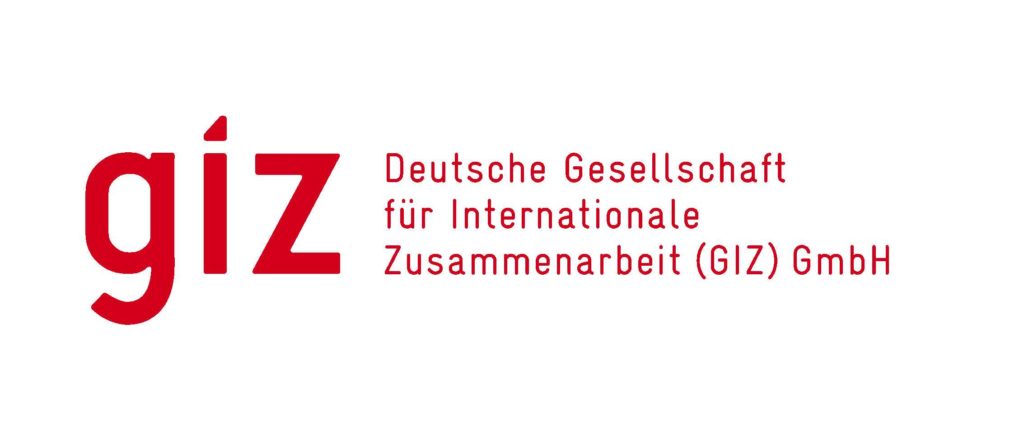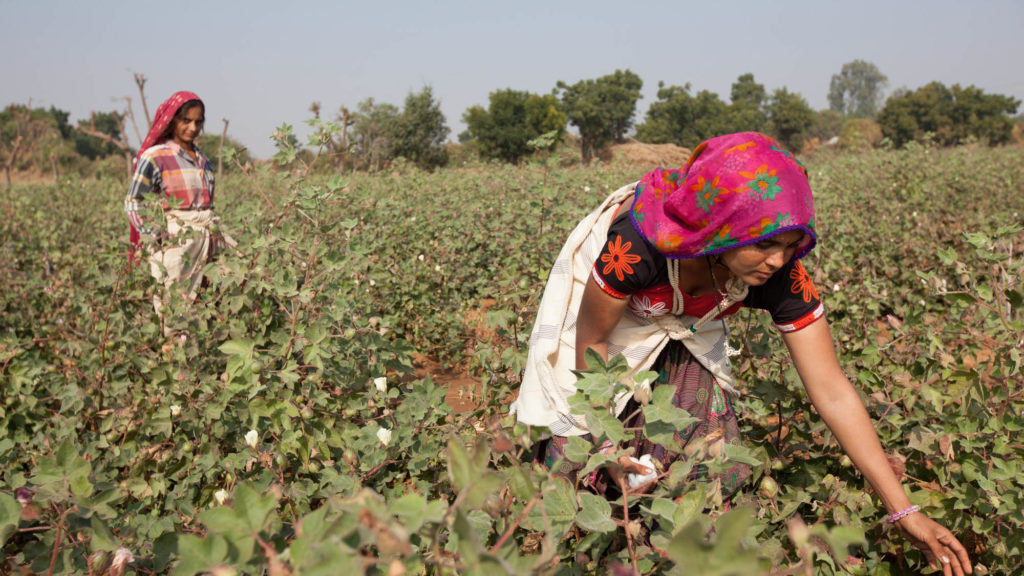Scheme will support most vulnerable cotton famers during Covid-19 and help keep our favourite clothes on shop shelves.
Fairtrade has received €80,000 from Deutsche Gesellschaft für Internationale Zusammenarbeit (GIZ), the German development agency, to provide food and income security for smallholder cotton farmers fighting the impact of Covid-19 in India.
This comes as the global pandemic continues to expose the fragility of our economy and highlight the extent to which we rely on large numbers of low-paid farmers and workers at the very bottom of supply chains to provide us with goods and services. The apparel sector has been hit especially hard and faces a bleak future, with many businesses struggling to continue to operate.
On behalf of the Federal Ministry for Economic Cooperation and Development (BMZ), GIZ has funded Fairtrade’s programme to ensure the incomes of approximately 2,150 smallholder cotton farmers in Gujarat, Tamil Nadu and Madhya Pradesh are safe and secure. It will also tackle both the immediate and mid-term crisis and protect the farmers in global apparel supply chains so that businesses can resume trading when the sector recovers.
Dr. Rossitza Krueger from GIZ, Project manager of the Global Programme Sustainability and Value Added in Agricultural Supply Chains (Cotton) in India, said: ‘Farmers who need assistance the most during this time of global crisis are able to sustain their farms and their family’s food security through this programme, delivered by Fairtrade. This will secure market access for the sustainable cotton under Fairtrade Standards whilst strengthening the entire global apparel supply chains.’
With the funding, Fairtrade will distribute subsidised GMO-free, cotton seeds and organic fertiliser to cotton farmers for the current season. Due to the decline in demand for cotton, farmers will also receive seeds to plant vegetables and grains on their land so they can feed their families and generate extra income at local markets. The seeds will enable them to grow vegetables such as tomato, okra, chillies, fenugreek, potatoes and border crops such as lemon trees, as well as a range of pulses and grains. Bio gas plants will also be installed in some regions to provide both energy for cooking and fertiliser for farms.
Subindu Garkhel, Fairtrade’s Senior Cotton and Textiles Lead, said: ‘We welcome the active role that GIZ is playing in supporting vulnerable apparel supply chains to tackle the immediate economic crisis and build resilience in the longer term through income diversification. In a situation like this, farmers need to rethink if they should continue to use their land’s full capacity to grow cotton this year, or only part of it.
‘The need for sustainability is set to become even more important for the apparel sector of the future as a result of Covid-19. Fairtrade is well placed to support this and we will continue to speak out about the clear need for living incomes and meaningful development assistance to build more resilient and sustainable supply chains and support farmers and workers struggling to withstand the pandemic’s impacts.’
More than six million people have contracted the virus in India, and more than one million people globally have lost their lives. Since March, business-as-usual has collapsed throughout the fashion industry. With retail shops having to close or limit customers and online sales slowed by the global economic downturn, countless fashion brands continue to struggle. Many of the hardships of this pandemic continue to fall on the most vulnerable members of the supply chain: the farmers and workers. This ripple effect is now trickling down to affect farmers. With demand for cotton continuing to fall, farmers will be worst hit and will face significant challenges to their income and food security.
Fairtrade reports that some cotton farmers are already unable to sell all their crops. The International Cotton Advisory Committee has forecasted that the consumption of cotton will drop by about 12% due to the impact of the pandemic. Global cotton prices are predicted to fall by 22% this year, according to the United Nations Conference of Trade and Development.
-Ends –
For more information, interviews or images, contact martine.parry@fairtrade.org.uk Tel: 07886 301486.
Notes to Editors
The Deutsche Gesellschaft für Internationale Zusammenarbeit GmbH is a German development agency headquartered in Bonn and Eschborn that provides services in the field of international development cooperation.
Find out more about Deutsche Gesellschaft für Internationale Zusammenarbeit

